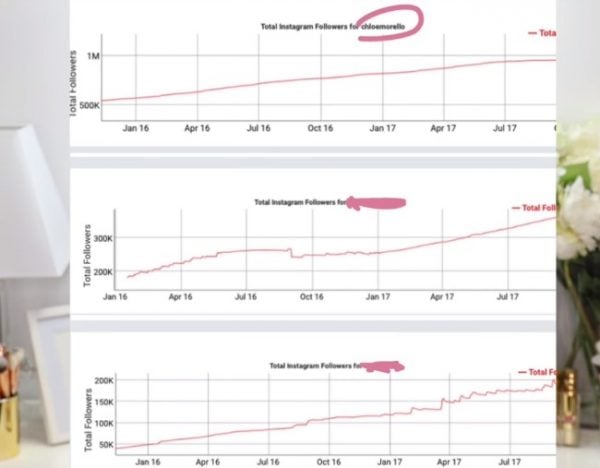Australian beauty YouTube sensation Chloe Morello has done her best to blow the lid on the ‘influencer’ industry, alleging many of those with substantial followings are committing fraud by buying their following rather than building their profile authentically.
Morello, who started her blogging career back in 2008 and started creating beauty content for YouTube in 2012, says she believes many of the ‘influencers’ she is surrounded by have been landing major contracts with makeup giants on the basis of fake followers.
“Instagram is a big business,” she says in her latest YouTube video. “So many people want to be part of this world.”
“The reason I am making this video is because I am seeing social media influencers on Instagram – and this is going to sound so dramatic, but keep in mind social media is a billion-dollar business where brands are paying influencers a lot of money – and I am seeing influencers come up and actually committing fraud by fraudulently acquiring followers, likes and comments.
“It’s definitely frustrating seeing people getting the same opportunities as me, going to the same events or even ones I didn’t get invited to… when I have done a lot of research and believe their following is fake.”
Out of context, Morello is right. The concept of fraud within the influencer and Instagram industry sounds dramatic, if a little first world.
But the point she desperately wants to portray is an important one: Whatever you think of Instagram and the kind of shallow narcissism it can appear to celebrate, it’s a big, booming business. Careers are made and lost in follower counts, and because the pace of the industry has grown exponentially, regulation hasn’t had the opportunity to keep up.


Top Comments
This is an old trick. You post a photo on Instagram nowadays and you get spambots liking it and telling you to check their page to help build your profile or something similar. They are services to buy followers. It’s the same with twitter, I’ve known people do it there. I think the bigger problem is when people follow you, then when you engage with them, build a rapport, follow them back, they unfollow you. I downloaded an app called followers and I was shocked to see a few I’d considered friends basically using me to increase their support numbers. It’s just rude- they’re usually people who have a lot of followers but don’t follow back a lot. I checked out this site and one person I considered a friend who did this had a rapid increase in the middle of the year so I can only imagine by this that she bought followers. If it makes her happy then good on her but it does change how you look at someone
So is there an online link to a tool people can use to check the stats of influencers for themselves?